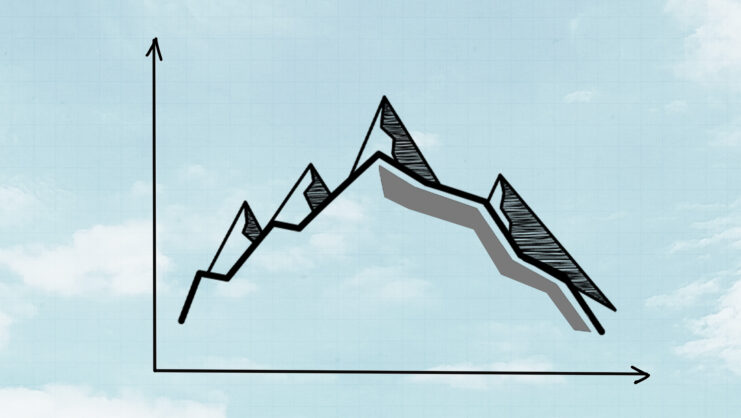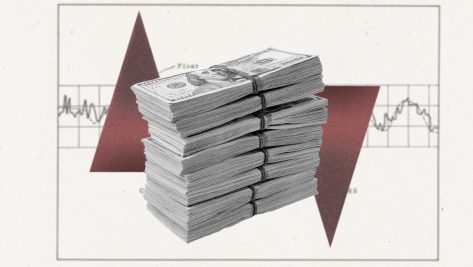We tend to view security as a natural and physical issue associated with human protection and the fear of armed conflicts or terrorist attacks. But security is also closely linked to the impact of rising unemployment, soaring interest rates, debt, and inflation, with their attendant effects on purchasing power. Numerous studies have found a relationship between economic turmoil and the rates of suicide, heart attack, and depression.
To be sure, security is intimately related to business. It is therefore crucial to maximize safeguards for all companies—from industrial conglomerates to SMEs—because their success reverberates throughout society at large.
Access to reliable information and the ability to analyze it are increasingly important factors in avoiding impulsive decisions with a high level of uncertainty.
Companies and countries
In terms of income and resources, the world’s largest companies and investment funds are comparable in size to many countries. The World Bank recently reported that only 31 of the world’s 100 largest economies are countries; the other 69 are business corporations. Although one might wonder whether the measurements used in this ranking are truly comparable (business income vs. national GDP), there is no doubt that corporations are gaining economic power with every passing year. Walmart, for example, was found to be the world’s 10th-largest economy, while State Grid, China National Petroleum, and Sinopec were ranked in 14th, 15th, and 16th place, respectively. Royal Dutch Shell was named the 18th-largest economy, while Exxon Mobil, Volkswagen, and Toyota were #21, #22, and #23.
But the question of security is not limited exclusively to companies; it concerns all sorts of organizational structures. Practically all countries have some sort of intelligence service. These agencies operate under various names, but their purposes are highly specific: obtaining, analyzing, and distributing information to assist in decision-making. It should come as no surprise that the largest and most powerful companies have similar services.
Companies essentially face three major challenges: internationalization, innovation, and intelligence analysis. To address these challenges, companies must introduce and incorporate economic and competitive intelligence into their organizational structures. Access to reliable information and the ability to analyze it are increasingly important factors in avoiding impulsive decisions with a high level of uncertainty.
The objective is to make the organization more competitive, to increase its influence, and to defend its tangible and intangible assets.
Intelligence for greater competitiveness
The use of intelligence in the economic sphere varies from one country to the next and is associated with many factors, including the need to compete and differentiate oneself. Information as power is an extremely important asset. Over the centuries, major economic powers such as Germany, Japan, and Sweden have harnessed this power for their development, with structures emerging both from the state towards companies (top-down) and in the opposite direction (bottom-up). The structures developed by these countries integrate all major stakeholders, including public services, business associations, universities, labor unions, and the expat diaspora. In Japan, these structures include the sogo shosha general trading companies, which drive exportation, and the keiretsu business organizations, which foster scientific development and strategic financing. In South Korea, meanwhile, industrial conglomerates known as chaebols play an important role in the exchange of information. More recently, countries such as France, China, the United States, and—especially in the past decade—Spain have developed similar structures in this vein.
Intelligence can be categorized according to who gathers it. When gathered by public services, it is referred to as “economic intelligence,” but when gathered by companies, it is called “competitive intelligence.” Intelligence focused on data management and the use of quantitative methodologies is known as “business intelligence.” According to the definition proposed by the Spanish National Intelligence Center’s economic team, business intelligence is a function that follows an organized, methodological process within a legal and ethical framework. It has little in common with sort of industrial espionage that makes for entertaining movies but has no place in real-life business practice.
The intelligence process is cyclical: planning, information gathering, and information analysis. Like an alchemist turning lead into gold, this process transforms information into intelligence, which is then passed on to the decision-makers who need it. The objective is to make the organization more competitive, to increase its influence, and to defend its tangible and intangible assets. This is a strategic challenge in today’s increasingly global and competitive environment, where information has never been more important. Everyone is playing the same game, in some cases with public-sector support or powerful business allies.
© IE Insights.











